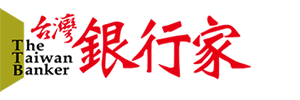2023.01 The Taiwan Banker NO.157 / By Hank
Globalization is not dead, it is evolvingEditor's Note
Duringthe historic first equipment installation at Taiwan Semiconductor Manufacturing Company’s (TSMC) Phoenix, Arizona plant, Morris Chang, the father of Taiwan's semiconductor industry, said “globalization is almost dead and free trade is almost dead” – which was widely reported as “globalization is dead.” However, studying the history of international commerce and TSMC’s historic development, it just one variant of globalization that is ending. In the new version, human civilization will continue to progress and develop.In early human history, whether it was the Chinese tribute system or the spice trade, only specialized products of each region were exchanged. It was not until the 16th century that the great discovery of world geography made the triangular transatlantic trade profitable, kicking off Globalization 1.0. At the time, capable European countries used advanced technology to produce cheap industrial products, went to Africa to buy slaves and traffic them to the Americas to produce cash crops, and then recycled the revenues back as the main source of economic growth for the mother country. This globalization involved a play of comparative interests and spread of religious gospel under military protection; humanitarian considerations were rare and superficial.It was also this globalization that led various countries to fight for overseas colonies or spheres of influence to obtain raw materials and export markets, which caused a new phase of imperialism, world wars and economic crises. Later, these tragedies finally allowed globalization to advance to a new stage. Institutional efforts on the international level, including the World Bank, International Monetary Fund, and General Agreement on Tariffs and Trade (GATT), allowed economic problems to be solved by non-military means.Although the ideological struggle between the U.S. and the USSR during the Cold War hindered globalization, the U.S. ultimately prevailed thanks in part to its dynamic free-market economy. The collapse of the USSR suggested that socialism, at least as it was understood in the Soviet Union, would not be the dominant socio-economic system of the future.Meanwhile, China was allowed to join the World Trade Organization (WTO) in 2001. It was a first: A giant nominally socialist country joining a global trade entity dedicated to promoting free trade principles grounded in Western capitalism.After joining the WTO, China became the world’s factory, and Wall Street served as its paramount source of global capital in this new stage of the country’s modernization (Taiwan and Hong Kong had played that role in an earlier stage).This arrangement served the interests of both the U.S. and China for a time. Thanks to its economies of scale, China provided ever-cheaper clothes, refrigerators, and flat-screen TVs to American consumers, even creating the illusion that massive money printing would not cause inflation. People began to believe that history would end in a trend of liberalization and democratization, while ignoring human rights, unemployment in the rust belts of advanced countries, the gap between the rich and the poor, and rebirth of populism.Yet as China’s challenge to universal values became evident, countries realized that it was time to update globalization to focus more on environmental sustainability, human rights, and intellectual property rights. Further, key geopolitical issues of global importance such as the maintenance of peace and stability in the Taiwan Strait also need to be considered.We need not be sentimental; the version of globalization that once centered on China serving as the world’s factory has finally come to its end. For its part, Taiwan should aim to help shape the emerging standards of the new globalization. To that end, the US-Taiwan Initiative on 21st Century Trade launched in June 2022 includes issues such as corruption, SMEs, digital trade, environmental protection, and state-owned enterprises.The new version of globalization, aiming to counter the Chinese model characterized by techno-totalitarianism and predatory mercantilism, is slowly taking shape. It is hoped that Taiwan will have the wisdom and vision to select the best partners for the future development of this next-generation globalization.


